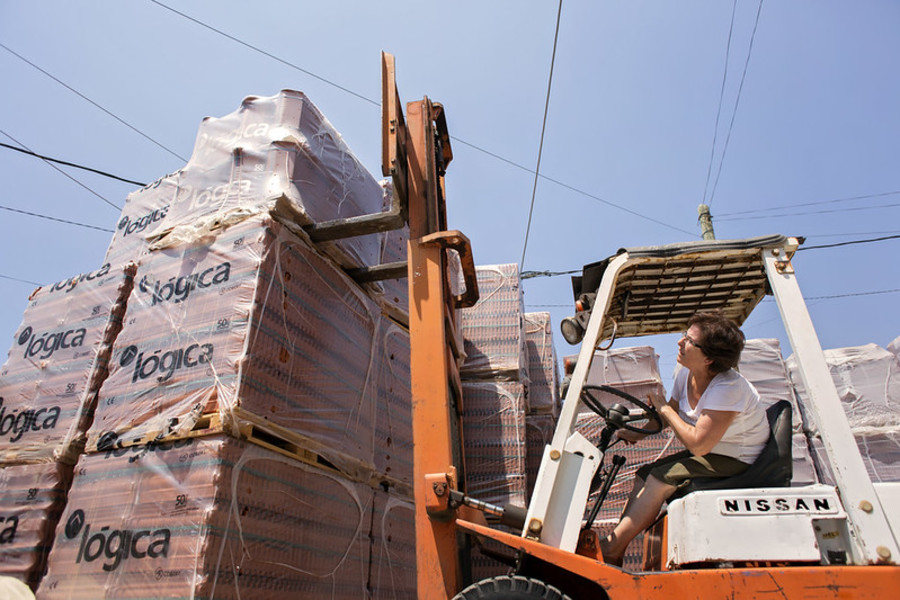Conferences and debates
Index / Activities / Conferences and debates / Changing Laws and Breaking Barriers for Women’s Economic Empowerment in Egypt, Jordan, Morocco and Tunisia
Changing Laws and Breaking Barriers for Women’s Economic Empowerment in Egypt, Jordan, Morocco and Tunisia
February 24, 20216:00 p.m.
ONLINE
Casa Árabe’s YouTube channel.
6:00 p.m.
In French and Spanish.
On Wednesday, February 24, we will be showing on our Youtube channel (in Spanish and French) the presentation of the report published in November by the OECD on the latest legal changes produced in these countries to break down barriers and improve the economic empowerment of women.
If women were allowed to play an equal role to men in the labor market, it is estimated that the GDP of Middle Eastern and North African countries could be increased by $2.7 trillion by 2025. Given the economic crisis that has arisen due to the pandemic, and the backlash it has generated in terms of the previously existing gender gap in wages, skills and leadership, it is more important than ever to lift the barriers which still limit women’s participation in the economy and achieve these long-sought advancements.
Despite the challenges some countries face in ensuring women’s equal access to economic opportunities, the latest OECD report, published in November with the title “Changing Laws and Breaking Barriers for Women’s Economic Empowerment in Egypt, Jordan, Morocco and Tunisia” (published in English, Arabic and French), highlights some of the legislative, policy and institutional reforms introduced in Egypt, Jordan, Morocco and Tunisia in support of women’s economic empowerment. While progress is being made and factors for success which have helped keep reforms in place are being identified, the report stresses that the process may be furthered through targeted, inclusive and coordinated policy actions. In this regard, it offers practical examples and tools for policymakers to transform policies into effective forms of action leading to the economic empowerment of women.
To present its results and action proposals, we have invited the guest speakers Carlos Conde, Head of the Middle East and Africa Division (OECD Global Relations Secretariat), Soukaina Bouraoui, Executive Director of the Center of Arab Women for Training and Research (CAWTAR), and Charlotte Goemans, a policy analyst in Gender and Development at the OECD and one of the main authors of the report. The event will be conducted by Olivia Orozco, Casa Árabe’s Training and Economic Coordinator.
The report, published on November 10, 2020, on the basis of a prior study conducted in 2017, is the result of cooperation between the OECD, CAWTAR and the ILO and benefited from the support of numerous local, regional and international experts.
The presentation, organized by Casa Árabe and the OECD, can be watched live on Thursday, February 24 at 6:00 p.m. through our channels on Twitter and YouTube. #debatescasaarabe
Carlos Conde
Carlos Conde is the Head of the Middle East and North Africa Division in the OECD’s Global Relations Secretariat, where he leads implementation of the MENA-OECD Governance and Investment for Development Initiative. This initiative promotes dialogue on governance, policies, investments and private sector development among MENA and OECD countries. Before joining the OECD in 2007, Conde was a professor of Political Science and Public Policy at the University of Granada in Spain, a position through which he managed various projects on educational cooperation, research and network building between European and Arab universities. He was a visiting professor at Harvard University (1995-96) and Al Akhawayn University in Morocco, where he gave classes from 2001 to 2003. He has a PhD in Political Science and Public Administration from the Universidad Complutense de Madrid.
Soukeina Bouraoui
Since 1999, Soukeina Bouraoui has been Executive Director of the Center of Arab Women for Training and Research (CAWTAR), a regional organization established in 1993 and based in Tunisia. The mandate of CAWTAR is to promote the status and role of women in development in the Arab region. Dr. Bouraoui founded and directed for six years (1991-1997) the Tunisian Centre for Information, Documentation, Studies and Research on Women (CREDIF). She also took the role of Chairman of the Women’s Development Plan Committee for the Eighth Tunisian National Economic and Social Development Plan.
She is a founding member of the International Forum of Mediterranean Women (1992), which actively fosters dialogue between Arab women and Euro-Mediterranean women and promotes networking among different social groups as key to sustainable development. In 1997, she was elected a Regional Governor of the International Environment Council. And, since 2000, she has been a member of the International Court of Environment Arbitration and Conciliation (ICEAC).
Dr. Bouraoui has taught in her capacity as a professor of law in the Legal, Political and Social Studies Department at the University of Tunis, having obtained a doctoral degree in law in 1982. She has authored international scholarly publications on the environment, economic law, citizenship and women’s rights and has been a visiting professor at various international universities.
Charlotte Goemans manages the OECD Development Co-operation Directorate’s portfolio on women’s economic empowerment as well as its portfolio on gender equality in fragile contexts. Previously, Charlotte was a policy analyst at the OECD Middle East and Africa Unit where she led the organisations’ work on women’s economic empowerment in the Middle East and North Africa and supported the OECD in strengthening its relations with different countries in sub-Saharan Africa. Prior to joining the OECD, she has worked for three different UN agencies (ILO, FAO and IFAD), where she led a range of development co-operation projects that aimed at improving the lives of the most vulnerable populations and has provided policy support to decision-makers in a number of countries in Africa and the Middle East. She has lived and worked in over 20 countries in 5 continents.

